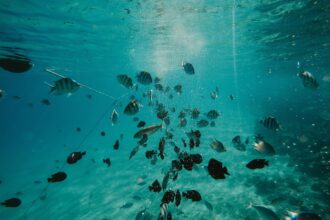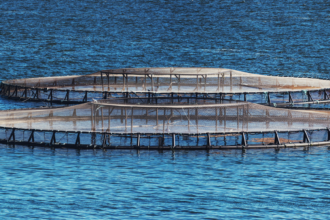The importance of clusters in the European blue bioeconomy – a B2E showcase
Collaborations and clusters play a significant role in boosting innovation and business in the blue bioeconomy. The COVID-19 pandemic has highlighted the roles that clusters are playing in fostering regional resilience, as they have provided a vital collaborative bridge between business and policy makers in regions across Europe. Furthermore, the presence of clusters in targeted regions is correlated with stronger innovation behaviour, economic performance, and employment outcomes, which is consistent with the rationale for cluster policy and their primary focus – to enhance firm-level innovation and competitiveness, boosting resilience. In the EU-27 there are over 1000 cluster organisations, whose membership on average is made up of 70% SME, 10% large companies and 8% research organisations (1). Clusters account for almost 25% of total EU employment (2).
With an estimated value of over USD 3 trillion by 2030 (3), the blue bioeconomy sector has enormous potential, as it covers a wide range of sectors including aquaculture, biorefineries, marine biotechnology and ocean energy. Through a collaborative effort between different actors such as companies, research institutions, and governments, common challenges are identified and consequently, opportunities for innovation arise. Clusters, as groups of firms that relate economic actors and institutions located near each other – with sufficient scale to develop specialised expertise, services, resources, suppliers, and skills (2) – have the potential to help creating a favorable environment for innovation, fostering close cooperation and knowledge sharing.
In Portugal, Fórum Oceano – The Cluster of the Portuguese Sea – is formally recognised by the Portuguese Government as the Portuguese Maritime Competitiveness Cluster. Fórum Oceano is leveraged by its massive ecosystem with over 150 members such as companies, business associations, R&D centres, higher education institutions, local authorities, and other associative organisations (4). Fórum Ocean is therefore well positioned and acts as a key partner and facilitator of strategic alliances between B2E and different players in the sector. A recent proof of an excellent collaboration between Fórum Oceano, B2E and other partners is the Portugal Blue Digital Hub project – an innovation hub created to support all sectors of the blue economy that recently received the Seal of Excellence from the European Commission in recognition of its “high quality in a highly competitive evaluation process” (find out more here).
There are also relevant cases of the success of blue bioeconomy cluster collaboration in the European context.
One great example is the NCE Seafood Innovation Cluster in Norway, which brings together more than 100 companies, research institutions, and other actors in the Norwegian seafood industry. Through sustainable innovation projects and by facilitating interaction across the industry, NCE Seafood Innovation Cluster has been able to achieve significant results in the blue bioeconomy sector, including the development of new products, the creation of new jobs, and the improvement of the competitiveness of the Norwegian seafood industry (5).
Another successful blue bioeconomy cluster is the Iceland Ocean Cluster, which brings together more than 70 companies and research institutions in the Icelandic Ocean and seafood industry. Through its efforts, the Iceland Ocean Cluster has been able to contribute to the growth and development of the Icelandic blue bioeconomy sector and has placed Iceland on the map as a leader in the field (6).
Recognizing them as strategic partners due to their vast and complementary knowledge in the seafood sector, B2E is collaborating with both clusters in the identification of challenges and opportunities within the marine coproduct valorisation, relevant for successfully steer the sector in Portugal, therefore, leading to new business models, new value-chains, new technologies and processes, new intermediary businesses, etc. This will result in a framework design to develop a roadmap for marine coproduct valorisation in Portugal while boosting research and business partnerships between the three entities and their respective partners. This is a Bilateral Initiative funded by the EEA Grants that will be implemented throughout 2023 (find out more here).
The European Cluster Collaboration Platform (ECCP) is another example of how collaboration and clusters can boost innovation and business. The ECCP is a platform that brings together clusters from across Europe, working as an online hub for cluster stakeholders (cluster organisations, policymakers, and other related stakeholders from the cluster ecosystem) to connect, communicate and collaborate, providing different services. Through the ECCP, clusters in the blue bioeconomy sector can collaborate on common challenges and opportunities, share best practices, and explore new ways of working together. To leverage the strategic international positioning of its value proposition in the sector, and to pull the results of its activity in an international context, B2E joined the ECCP in May 2022, where 173 research organisations, 772 SME, 148 large companies, 181 other Portuguese entities are registered (1).
In conclusion, through partnership and proximity of different actors, clusters play a crucial role in building bridges within the different sectors, supporting the joint definition of strategies and creating new opportunities. B2E has been on board with this strategy since its inception in 2019, working every day since then to actively contribute to the sustainable development of aquaculture and use of marine living resources, boosting international collaborations, sharing expertise and information, and providing relevant services to its entire ecosystem, bringing together research, education, innovation and business.
Let’s collaborate and shape a new blue bioeconomy! Find out more here!
References:
1. European Cluster Collaboration Platform (2021). European Cluster Panorama 2021
2. European Commission. Internal Market, Industry, Entrepreneurship and SMEs. Consulted in February 2023, available at https://single-market-economy.ec.europa.eu/industry/strategy/cluster-policy_en
3. Organisation for Economic Co-operation and Development (2017). L’économie de la mer en 2030
4. Fórum Oceano (2022). Consulted in February 2023, available at https://forumoceano.pt/en/associacao-2/
5. NCE Seafood Innovation (2021). Annual Report 2021





